The All Party Parliamentary Group for Shipbuilding and Ship Repair has launched a report on the National Shipbuilding Strategy.
Based on evidence from experts in the field, the report calls on the Government to ensure domestic yards receive the Fleet Solid Support Ship Contract in order to retain the skills needed to construct, refit and upgrade complex warships in the future. The report states that the industry is already facing significant redundancies as the aircraft carrier programme runs down, with the subsequent loss of leading-edge skills.
Once lost, the report argues, these skills cannot be quickly regained and the UK’s sovereign capability to produce complex warships will suffer accordingly, as will the UK’s ability to project naval power.
The APPG states that “it is the responsibility of the Government to ensure the Royal Navy receives its equipment from a leading-edge supply chain and support structure and is therefore able to maintain its operational advantage”.
The report can be downloaded here but for the sake of brevity, here are the recommendations.
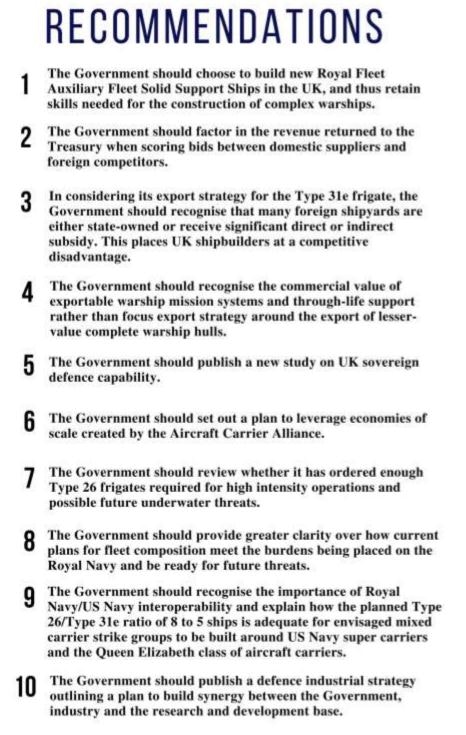
Chair of the APPG, The Rt. Hon Kevan Jones MP, has called on Government to “ensure the £1bn contract for Fleet Solid Support Ships is handed to British yards in order to preserve UK’s capability to design and construct warships in the future”.
General Secretary of the Confederation of Shipbuilding and Engineering Unions (CSEU) warns that “as carrier programme runs down, closures and redundancies are already starting to blight shipyards and supply chain”.
Conservative MP Anne-Marie Trevelyan states that “with the appointment of my Rt. Hon friend Penny Mordaunt as Defence Secretary, this is the ideal time for the Government to reconsider its current position and signal to the private sector that the Government is committed to providing a steady stream of work to UK shipyards and the supply chain”.
The foreword of the report is displayed below and was signed off by Kevan Jones MP, Anne-Marie Trevelyan MP, Chris Stephens MP, Luke Pollard MP and Paul Sweeney MP.
“As an island nation, the United Kingdom’s security and prosperity has long been associated with the seas. With the UK preparing to leave the European Union, our country’s maritime dependence is more apparent than ever and uncertainty about the UK’s sovereign capability to produce warships remains. The National Shipbuilding Strategy outlined the Government’s aspirations to reform naval procurement by reintroducing greater competition into UK shipbuilding.
UK shipbuilding is primarily driven by military sources of demand and long-term national security considerations. Following its inquiry, this APPG recognises the political case for retaining the UK’s sovereign capability to produce warships. We further recognise that the UK’s position as a producer of world-class warships should be understood more widely. UK Shipbuilding has evolved from the smokestack and panel-beating industry it once was. It is now at the very forefront of innovative technologies and capabilities, as can be observed by the export success of the Type 26 frigate.
However, the current ‘feast or famine’ nature of military demand threatens our ability to maintain the sovereign capability to produce warships. The National Shipbuilding Strategy significantly reduces the scope of ships that the UK is qualified to build and threatens the long-term viability of our fragile shipyards. Its approach to naval procurement is not novel. Its concepts have been tried, tested and have failed before. The very shape of today’s UK shipbuilding industry is a result of rationalisation, following a period of policies urging shipbuilders to compete with each other and yards going bust.
Furthermore, the Government’s inability to provide certainty for industry through a secure timeline of contracts endangers the UK’s position as a world leader in shipbuilding. Certainty around future orders, driving industrial drumbeat, would enable private sector shipbuilders and the wider supply chain to invest in infrastructure, facilities and emerging naval technology, thus renewing the UK’s competitive advantage.
Secondary economic impact and tax returns to the Exchequer would provide further benefit to the UK as a whole. It must also be further understood that the benefits of investment in shipbuilding are not confined to historical shipbuilding areas alone. Shipbuilding and the supply chain will not make required investments unless the business case stacks up.
Shipbuilding is a hugely capital-intensive industry with one of the highest barriers to entry of any major industry in the world. Consolidating a position within the market and securing a reputation for excellence requires strong co-operation between Government, industry and the research and development base. The industry already faces significant redundancies as the aircraft carrier programme runs down, with the subsequent loss of leading-edge skills. Once lost, these skills cannot be quickly regained and the UK’s sovereign capability to produce complex warships will suffer accordingly, as will the UK’s ability to project naval power”


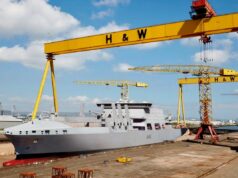

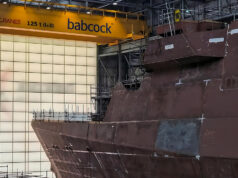

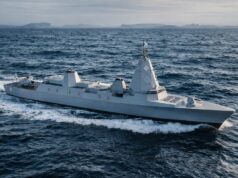
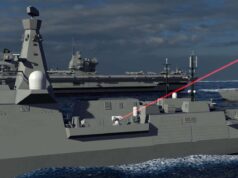
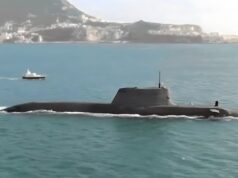




Simple decision. Build in the UK retain UK skills and infrastructure
Regardless of the cost?
Go to a UK company and say it doesn’t matter how much it costs we will pay it?
Would you buy a house and say to the current owner I will pay whatever price you demand?
The defence budget is finite, over spend money on these ships and something else in the equipment budget will have to be sacrificed.
Mike, what the supporters of this say is it doesn’t matter because you get a % back in taxes so increase price = increase % in tax. So the treasury gets something back so the budgets don’t have to suffer. But the problem is the % back is not immediate, it could take years to receive and not a guaranteed %. So your right something will have to be cut or we borrow the money until the tax receipts pay it off.
If you read the report it suggests BAe is now the sole supplier and overcharges the MoD. So its a little contradictory.
I think we should build in the UK but we need a strategy that ensures yards do invest and we get value for money. It’s all very well some quoting that foreign yards get subsidies but this just shows that sudsidies don’t work, if a foreign yard needs a subsidy to win work then its obviously not used its previous subsidy to good effect so they’re forever on the hook for government money. We need to ensure we don’t fall into the same trap. Cammel Liard seems to be a good example having won work against subsidised yards withou any government support.
The cost/price of building is not a finger in the air guess and nowadays can now be more accurately measured and calculated in this digital age. Firms cannot take the p***. The FSSS should be easier to caculate than more so than frigates and destroyers where we do see huge prices because of these systems.
Were the new carriers, t45, OPVs and Astute submarines all delivered on time, on budget and to the standards required by the RN in this digital age?
Apart from ordering more T26 its a lot of fluff.
T31 will never happen with the budget it has been allocated. Re-invest money in another T26 or buy something sensible with the money like Holland class OPV’s. (I bet Damen have even looked at sensible upgrades for the latter such as (slightly) bigger engines and rafting etc……)
Well the industry was always going to reduce in size after building the carriers. Just like with any large construction project.
Its also its not factual that we will be loosing skills to build complex warships anytime soon. We’ll be building the T26, probably one of the most complex surface ships ever into the 2030’s and then the T45 replacement.
The report does state that the metal bashing part of complex ships is overstated and most of the value is in the complex systems. I agree with this, from a export growth perspective thats where our main expertice and significant value lies. So should we be investing in the yards or is it better to invest in the supply of the complex systems and sell them to other countries? Like with F35 we produce a number of subsystem but not the whole aircraft but because will sell more there’s a bigger economic benefit.
Very encouraging, but who is it aimed at, and will they listen?
My thoughts too Maurice. Releases like this do give me faith in our political system, it seems that there are people in parliament who are very clear on what the issues currently are with our navy and what needs to be done to rectify them. Next step is trying to gain political traction and actually implement something worthwhile.
Any contract, whether to a UK or foreign company, should be competitive, based on a realistic cost benefit analysis, a fixed price and penalties for missing time and quality targets.
If UK companies cannot compete, then we need to invest in areas were they can.
Investment is not pouring money into a pointless project to try and sustain an uncompetitive industry.
There are several parameters to consider for this contract, but at the end of the day it comes down to is viable for the UK to sustain shipbuilding.
The 10 recommendations are all very sensible. Mourdant is right defencec expenditure has to go up.
The MARS replenishment ships need to be UK built. Tge type 26 frigate gas to have come down in price seeing as the hull and design work is now spread over 32 international confirmed orders. The Royal Navy must be able to afford to put the order back up to 13.
Type 31 should be built with batches of 6. 6 initially then 6 more in the near future.
We need an escort fleet of at least 26 hulls just to match current tasking requirements in peacetime.
Then someone needs to go to BAE and ask how much for another 3 improved astute class subs. 10 SSNs is where the RN should be not 7.
It all comes down to money but the money is there government just misspend it. Too many handouts for no society gain. Like Begum getting legal aid to fight for her right to return to the UK. WTF?? She lost her nationality (as did all the other ex British nationals) when she joined the ISIS death cult. Her nationality is terrorist.
These need to be built in the UK…A very simple decision in my opinion.
We definitely want R.F.A. ships as well as complex warships built in Britain, the same as France, Germany, etc. Like the report says this will make it worthwhile British shipyards investing in new facilities and equipment which will increase our efficiency, which in turn will make the complex warships cheaper to build. It will also keep British people in highly skilled, well paid jobs.
Where are you talking about? I keep hearing uk shipbuilding, everyone is 30 years too late the only yards building ships are the yards already supplying. And what they turn out is pish, dangerous, poor quality, late and over budget. The opv’s should have been built on Appledore as a small to medium size yard but no everything has to go to Scotland. So UK shipbuilding strategy is 2 yards in Scotland and 1 in Liverpool. Great that.
Thanks George. I’ve just successfully finished the Defence Acquisition Management MSc from Cranfield university. My thesis was on frigate acquisition since 1947-2017. This APPG report reinforces the lessons identified by me and also the recommendations I made.
Thanks again.
While I do understand the need to preserve skills and people in the UK Shipbuilding Industry, I have to ask, what has the Industry and Unions done to drum up commercial business for the shipyards? If they are not able to compete internationally for contracts, can they really go complaining to HMG about the loss of business and shipbuilding contracts?
I am sure they have valid complaints, but sometimes I feel that the Unions come across as “spoilt children.” HMG has the right to ask for the best at the best price. If it does come down to preserving the shipbuilding industry for the National Interest, then perhaps a common design should be decided on for the Fleet Solid Support Ships (FSSS). Then split the contract between Domestic and International shipbuilders. Nothing like healthy competition to bring out and promote the best.
Alternatively, if the FSSS competition is open to both International & Domestic Shipbuilders, then the contract could be set up to have a certain percentage of the ship to be built in the UK, whether it is components, hull sections, or other ancillary equipment. This will ensure that there is sufficient work to keep British Shipyards active. Like in the USA where if foreign companies want to make a bid for military contracts, they have to have a US partner or establish a US based company. It may cost more than to just have it built overseas, but, it will still keep the shipbuilding industry intact in the UK.
Just my 2 pennies…
The government should guarantee 8 Type 26s to be built on the Clyde and 8 Type 45 replacements, and with that guaranteed work encourage B.A.E.S. to build the frigate factory so the Royal Navy has modern, efficient facilities to build our ships in.
If we are to become global the best place to start is to build our own ships in our shipyards. The world seems to like the Type 26, further orders may come and we will need a capability for maintaining thee vessels also, my thoughts are to go for it